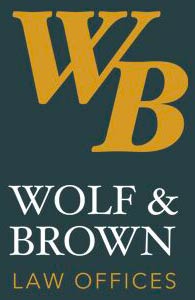

It’s essential for veterans and their families to understand the distinctions between these two benefit programs to determine which may be applicable to their unique circumstances.


The Department of Veterans Affairs (VA) provides a range of benefits to eligible veterans, two of which are compensation and pension benefits. While both programs offer support, they serve different purposes and have distinct eligibility criteria and payment structures.
Compensation Benefits
Purpose
Compensation benefits are designed to provide financial support to veterans who have incurred disabilities or diseases during their military service. These disabilities are typically service- connected, meaning they resulted from or were aggravated by military service.
Eligibility
To qualify for compensation benefits, veterans must demonstrate service connection between their disability and their time in the military. This can include physical injuries, mental health conditions, or diseases that emerged during service or were exacerbated by it.
Payment Structure
Compensation benefits are awarded based on the severity of the service-connected disabilities. The VA uses a rating system, assigning a percentage of disability to each condition. Higher percentages result in higher monthly compensation payments.
Tax Status
Compensation benefits are generally tax-free and do not count as income for tax purposes.
Medical Care
Veterans eligible for compensation benefits also receive access to VA medical care for their service-connected conditions, often free of charge.
Pension Benefits
Purpose
Pension benefits are financial assistance programs for veterans and their surviving spouses who have low income and meet specific age or disability requirements. These benefits are not related to service-connected disabilities.
Eligibility
To qualify for pension benefits, veterans must meet income and asset limitations, have served during a wartime period, and meet specific age or disability criteria. These benefits are primarily for veterans with limited financial resources.
Payment Structure
Pension benefits are provided at a flat rate, which varies depending on the veteran’s circumstances (single, married, surviving spouse, etc.). These benefits are means-tested, meaning they are adjusted based on the applicant’s income and assets.
Tax Status
Unlike compensation benefits, VA pension benefits are considered taxable income and must be reported on tax returns.
Medical Care
VA pension recipients are not automatically entitled to VA healthcare services. However, they may be eligible for VA healthcare if they meet certain criteria, such as being catastrophically disabled.
In summary, compensation benefits are designed for veterans with service-connected disabilities and provide financial support based on the severity of those disabilities. Pension benefits, on the other hand, are income-based assistance programs for veterans and their surviving spouses who have limited financial means and meet specific eligibility criteria.
If you’re uncertain about your eligibility or need assistance with the application process, please reach out to our team at Wolf & Brown for a free consultation.
Relevant pages: NJ Vet-Wire; Veterans Disability


